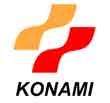Anime News
|
HD DVD SURPRISE FOR BLU-RAY Date: 5/10/2005 |
|
The chances of a compromise in the high-def DVD battle took a turn for the worse Tuesday. In a surprise announcement, Toshiba, the company behind the HD DVD format that has been adopted by Paramount, Universal and Warner, revealed two significant storage capacity improvements in an effort to close the gap on Blu-ray's primary advantage. Toshiba has devised a way to add 50% more storage capacity to its proposed HD DVD format and to provide an option to glue a standard DVD movie disc on the back of every HD DVD movie disc to overcome consumer concerns about buying a movie that won't play on all the non-HD machines they own. The announcement, which gives the HD DVD camp a significant perceived advance in its war with the Blu-ray group, came just hours after reports from Japan early Tuesday indicated that a unified format agreement was imminent between the two sides battling over which technology to use for the next-generation high-def standard for movies on digital discs. Toshiba, supported by Warner, Universal, Paramount and others, leads a camp that has developed one format for the next-generation of high-definition DVDs called HD DVD that had offered 30 gigabytes of storage capacity (6 to 8 hours of high-def video) on a disc that is a variation on the existing DVD technology. First, machines and movies have been announced for release in time for the holidays this year, although many are skeptical that timeline can be met. With the announcement Tuesday, Toshiba says a triple-layer HD DVD disc will increase capacity to 45 GB on a single-sided disc, or as much as 12 hours of high-def content. The double-disc "hybrid" option would offer a dual-layer 30 GB high-def disc on one side and a standard definition 8.5 GB disc on the other. Sony and Matsushita, supported by Disney and others, have created a new but similar-looking digital disc using a proprietary technology that offers 50 GB of capacity. Launch is expected in early 2006. Neither format is compatible with the other. Fox and DreamWorks have yet to weigh in with their preference, and are not likely to anytime soon since a commitment at this stage by either or both studios would give none of the parties much of a strategic advantage. Fox is believed to be concerned about copy protection issues. Both sides acknowledge that introducing two incompatible formats for the same type of product could be disastrous, causing consumer and retail confusion and therefore delaying acceptance and possibly killing chances altogether for the adoption of a new high-def disc format, especially as electronic and wireless delivery of movies is gaining popularity. At stake is a financial cut and control of the disc on which consumers spend tens of billions of dollars each year to see movies, TV shows and play videogames. Sony is already planning to integrate Blu-ray into the Playstation 3, while Microsoft is expected to announce this week that HD DVD will be a non-exclusive component of the upcoming Xbox 360. Both next-gen gaming consoles will be used for DVD playback and home media networking. Last month the two sides began quiet negotiations on a potential compromise standard. Both camps are scheduled to hold meetings in Tokyo starting Monday. Just prior to Toshiba's announcement Tuesday, the company issued a statement debunking reports from the Japanese media that an agreement was at hand. A short while later, the company made its announcement about the two revisions to its proposed HD DVD format. Although much of the discussion about capacity is somewhat academic, since most studios have no idea what content they would use to fill so many hours of space on a single disc, it does offer options to condense the number of discs for a TV series, and Sony intends to use the increased storage space as the basis for its next-gen PlayStation videogame unit. Sources at multiple companies in the HD DVD camp said Tuesday's announcement was aimed at swaying Disney over to the HD DVD side. Disney has no stake in underlying technology patent fees and has said its support of Blu-ray was non-exclusive in hopes that a single standard could emerge. But Disney has been vocal in its preference for the increased capacity of Blu-ray for the purposes of including more content and more interactivity, such as more sophisticated games on machines designed for families in the living room. Officials at Disney and Sony had no official comment Tuesday, but sources within the Blu-ray camp dismissed the Toshiba announcement as rhetoric and strategic positioning on the eve of a Media Tech Expo in Las Vegas and just ahead of the meetings in Japan next week. None of the new technologies announced by Toshiba has been seen or approved by any of the parties necessary. "We're pleased they're finally acknowledging [that] more capacity is very important, but what they're talking about is theoretical and down-the-road," said Andy Parsons, senior VP advanced products at Blu-ray backer Pioneer. "This doesn't help the chances for unification." A spokesman for Toshiba acknowledged that the timing of the announcement was geared to Media Tech and that the technologies announced Tuesday would have to be approved by the DVD Forum, which could mean these optional components of the HD DVD might not be ready in time for the planned fourth quarter launch. Universal Studios Home Entertainment president Craig Kornblau said he is most excited about the development of the hybrid disc, because it will be a tremendous marketing tool to use with consumers in the transition to HD, though he acknowledged that it will be beneficial only during that period. Consumer research by Universal shows that more than half of consumers who already own high-def TVs and equipment would pay a higher price for hybrid discs than HD DVD discs without the standard DVD attached, he said. Kornblau also acknowledged that three different versions of the same movie would create a challenge for retailers and consumers. Warner executive VP and general manager Marsha King said her studio would look at selected movies to release in both standard and high-def on the same DVD. |
| Source: DVD Exclusive |



















